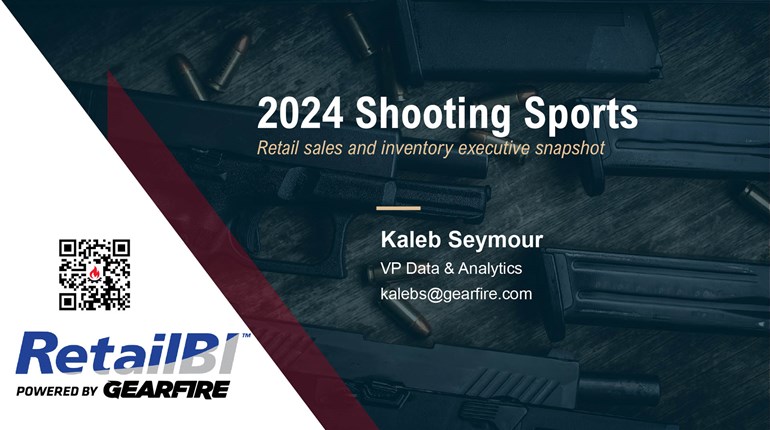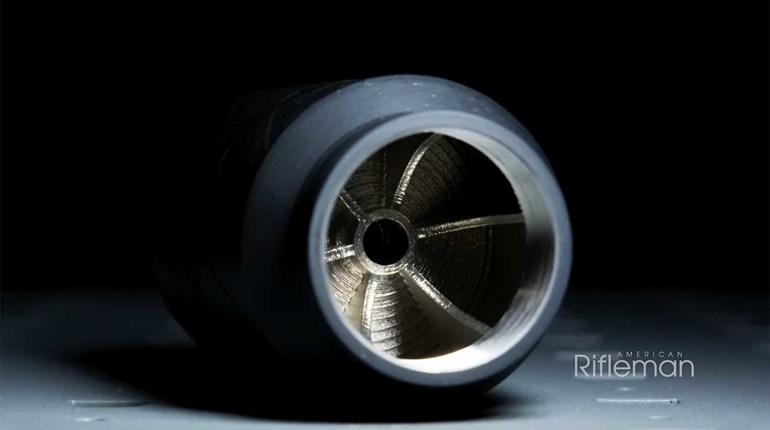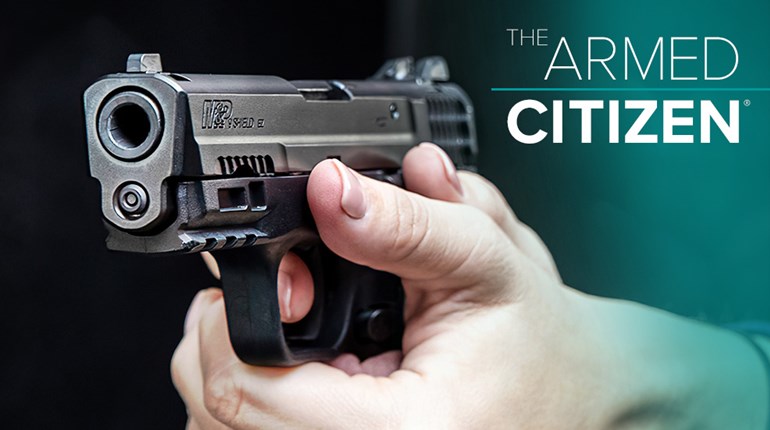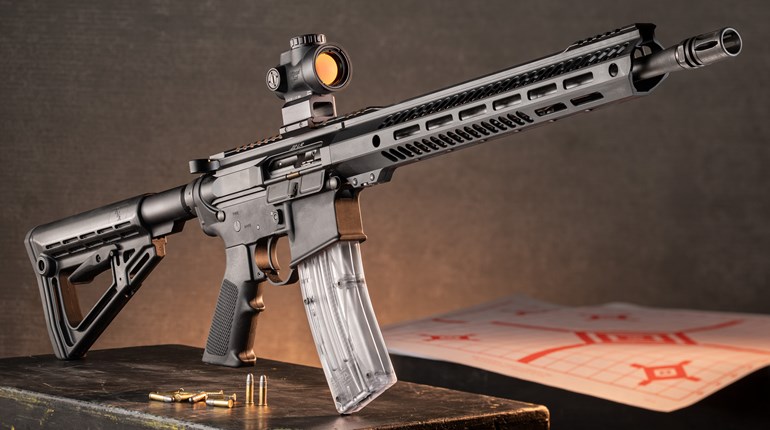
Were one to rely solely upon Hollywood movies for one’s general impressions of the world’s jagged edges and contours, one would end up with a rather limited grasp on reality. The silver screen can be many things—artful, imaginative, a source of much-needed escapism after a long day at work—but accurate it is usually not. And nowhere is this more noticeable than in the realm of firearms. Lately, as the Hearing Protection Act of 2017 has begun to wend its way through Congress, this limitation has become even more apparent than usual.
As the bill’s name suggests, the HPA represents little more than a modest and benign update to what is an outdated and irrational law. At present, Americans who want to add a suppressor to their gun must pay a $200 tax to the treasury and submit to a six- to eight-month background check process. If the HPA passes, those requirements will be repealed, and the federal government will cease to intrude in the 42 states in which suppressors are available without delay. This, without doubt, would be a positive step. As the bill’s authors note, suppressors are innocuous and useful devices that slightly lower a gun’s audible report, and thereby limit the damage that repeated shooting can do to one’s ears. That they were ever singled out to be taxed and discouraged is absurd. As the bill’s name suggests, the HPA represents little more than a modest and benign update to what is an outdated and irrational law.
Alas—and if you’ll forgive the pun—the case in the HPA’s favor is falling on some willfully deaf ears. Announcing her dismay at the idea of reform, U.S. Sen. Kirsten Gillibrand, D-N.Y., argued in March that suppressors make it difficult for police officers to do their jobs: “When someone gets shot by a gun with a silencer, it’s quiet. Witnesses might not hear. Police will be less likely to track down the shooter.”
In addition, Gillibrand submitted, “silencers pose a huge risk to our enforcement and our communities and I will do everything I can to stop this ill-thought-out legislation that would allow more criminals to get their hands on these dangerous weapons.”
This line is a popular one. In its public statement on the matter, Gabby Giffords’ gun control group, Americans for Responsible Solutions, proposed that “active shooters” can use silencers to avoid “being detected by trained law enforcement professionals.” Similar arguments have been made routinely in the The Washington Post and The New York Times.
Those wondering where this idea comes from need look no further than at a January column by the Post’s Michael Rosenwald, in which the author suggests with a straight face that “firearm silencers” have been strictly regulated “for as long as James Bond and big-screen gangsters have used them to discreetly shoot enemies between the eyes.”
Or, put another way, in which the author confirms to his readers that he does not understand the difference between reality and make-believe.
At the movies, suppressors are in fact “silencers,” capable of completely masking the sound of a gunshot and allowing their owners to kill without detection. In truth, suppressors are ... well, “suppressors,” and their role is to diminish to a small degree the sound that is generated when one pulls a firearm’s trigger. On average, suppressors transmute a 165 dB sound into a 135 dB sound. Or, put another way, they change the volume from one that is akin to a jet engine into one that is akin to a jackhammer. As Rosenwald’s own newspaper observed in its “Fact Check” pages, Rosenwald is simply incorrect in his characterization: “There is little that’s quiet about a firearm with a silencer,” Glenn Kessler wrote, “unless one also thinks a jackhammer is quiet.” For a long while now, I have labored under the disquieting impression that our anti-gun politicos are playing more to the cameras than to the Constitution.
Which, of course, nobody does. Or rather, nobody sensible does. Indeed, it is telling that Giffords’ group cannot make up its mind as to what suppressors actually do. Incredibly, in the same press release that claims suppressors help “active shooters” avoid “being detected by trained law enforcement professionals,” ARS also argues that “silencers do not protect your hearing,” and that the HPA “does nothing to protect hearing.” Which is it? Are suppressors “silencers” that turn criminals into James Bond? Or are they so ineffectual as to be unworthy of Congress’ notice?
The answer, of course, is “neither.” In truth, the HPA would repeal a law that does no good whatsoever, and that does a modest amount of harm to those law-abiding citizens who wish to exercise their constitutional rights. Despite Sen. Gillibrand’s preposterous characterization, criminals are not interested in suppressors, which, among other things, serve to make the guns they prefer less concealable, which fail to “silence” anything at all, and which do not fit on the 90 percent of firearms that lack a threaded barrel. And Rosenwald’s fantasies are just that—fantasies. To America’s apparently numerous “big-screen gangsters,” suppressors are next to useless, which is why only 44 out of the 1.3 million suppressors in circulation in America are used annually in the commission of a crime (that’s 0.003 percent). If, as Gillibrand and Co. appear to believe, this rate provides sufficient warrant for an intrusive federal law, we must really need to start taxing and regulating knives, baseball bats and hammers.
Alternatively, we could grow up and instead shape our laws to benefit America’s shooters, hunters, instructors and beginners, none of whom should be denied the use of a safety mechanism out of fear of a mythical foe. Under the HPA’s reforms, the convicted will remain prohibited, and the penalties for violation will remain fully in place. Concurrently, those who are at liberty will be rid of a pernicious restriction.
For a long while now, I have labored under the disquieting impression that our anti-gun politicos are playing more to the cameras than to the Constitution. If the HPA goes down because the Senate has watched too many spy movies, that suspicion will be a difficult one to dislodge.
Charles C.W. Cooke is the editor of National Review Online.

































